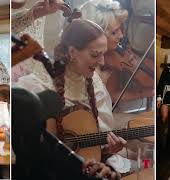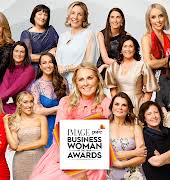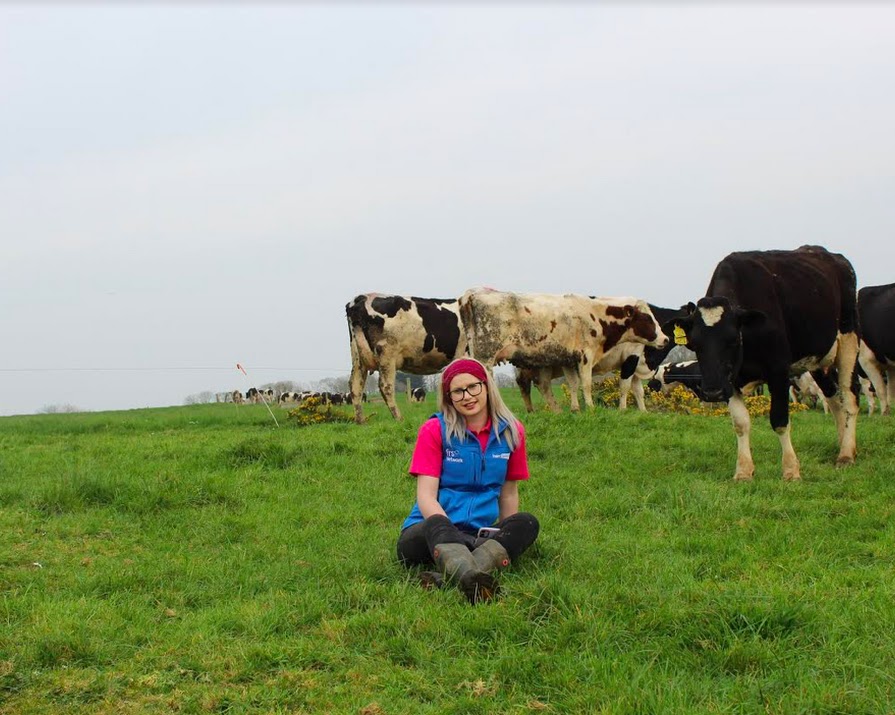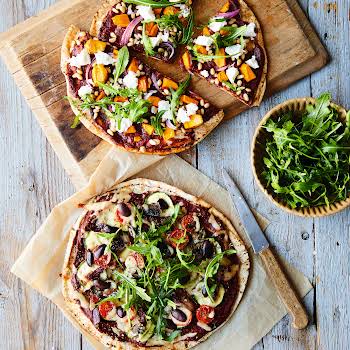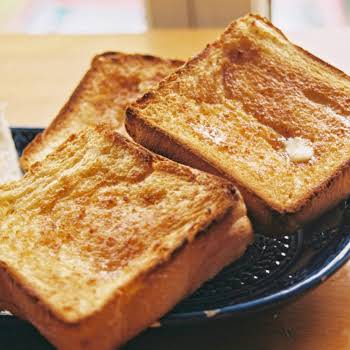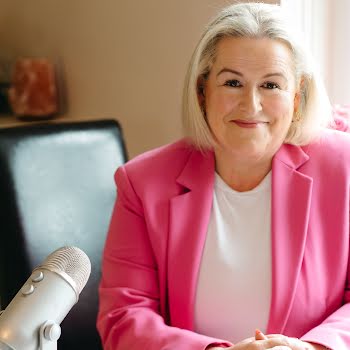
Meet the young female farmers changing the lay of the land through sustainability
By Amanda Cassidy
24th Sep 2020
24th Sep 2020
At a time when the Irish agriculture industry is facing a major challenge, Amanda Cassidy speaks to young female agri-food producers about perceptions, sustainability and the impact of Covid-19 on their lives.
25-year-old Louise Crowley has almost 5,000 followers on her popular Instagram account. But Louise is an influencer with a difference – instead of trilbys and compacts, she posts pictures of tractors and cattle.
Louise is a dairy farmer based on her family farm in Co. Limerick. She is also heavily involved with Macra na Feirme. She says that Instagram has become a useful tool in communicating her passion for sustainable farming and demystifying the myth that farming is a job for men only.

“In 2020, it is easier to be a woman and choose an agricultural career. We have had such strong female representation over the last few years that it has been changing people’s viewpoints. With the advancements in technology and machinery, the heavy, laborious work is slowly being made easier on farms making it possible for women to do all the same jobs as men.
“I’m lucky that I’m in a community where I have been and am greatly supported in all I do. But it really does hit home to the fact that a lot of people aren’t so welcoming to a female in farming.
“Women have always been keystones of Irish agriculture, from milking cows to feeding calves and in more modern times keeping the paperwork all above board. A lot of our male counterparts have ‘let us’ carry out these jobs in the past, but fortunately these days it’s becoming common to see the female not only being the worker, but being given the credit too for being the boss and making the important business decisions for the entire farm. I’d like to lead the way on that front.”
I think one positive to come from this situation is people’s appreciation of the long hours and hard work that Irish farmers put into delivering the food on the shelves of our supermarkets

Changing perspectives
Louise believes that the arrival of the coronavirus pandemic has started to also change our perspective. “There has most definitely been a new focus put on where our food comes from. I think one positive to come from this situation is people’s appreciation of the long hours and hard work that Irish farmers put into delivering the food on the shelves of our supermarkets.
“I think Irish people will emerge from this crisis with increased respect for farmers and will continue to want to support farmers by buying Irish produce and supporting local producers where possible, considering we always support the public by continuing to do our job and ensuring the supply of fresh products.”
A typical day for Louise begins at 7am. “Dad milks in the mornings, so that I can focus on finding cows bulling (in heat) and sorting them for breeding. We are two weeks into our breeding season, so there is a lot of work involved in watching cows to ensure they go back in calf for next year’s milk production.
“After milking, all the groups of calves and heifers are then fed meal outside while carrying out the daily stock checks. The grass in the cows’ paddocks are all measured once a week normally to ensure top quality grass is always in front of them while ensuring that the quality is kept for the weeks in advance also. Grass measuring and management is my area too.
“We are also gearing up for the silage season. This means checking the silage ground weekly to see how it’s growing and to figure out the optimal time for cutting. We recently made 29 bales from paddocks deemed too strong for grazing. This decision came from the grass walk results for last week.
“By 4.30pm it’s time to bring the cows back in for the 5pm milking. I do this milking. While milking cows are checked to see if they are bulling. The younger calves on milk must all be fed again, and the last six cows left to calve must be checked to ensure they are okay. Once the cows are safely in their paddock after milking, the yards are all washed down and that is a day complete.”
Teresa Roche, Kylemore Cheese
Irish agriculture is one of the world’s leaders in sustainable farming and I’m so proud to be part of the industry
A qualified nurse, Teresa Roche returned home from Australia to her parents’ dairy farm in Co. Galway five years ago. Teresa quickly realised that there was an opportunity to add value by re-invigorating the farm. Despite her extensive experience in professional health care, Teresa always wanted to build her own brand, mainly after casting a careful eye on agri-food producers globally.
An appetite for cheese production originated from her travels and Teresa began paving her way by acquiring knowledge and experience from a variety of mentors across Switzerland, the UK and Ireland. From there, Kylemore Farmhouse Cheese was born.

“Overall, it is a very exciting time to be a female farmer,” Teresa believes. “Irish agriculture is one of the world’s leaders in sustainable farming and I’m so proud to be part of the industry. One of the unique aspects of Irish farming is that Irish cows are grass-fed and enjoy a more natural pasture-based system compared with our global counterparts.
Innovation
Females have carved out a strong voice on many leading farming representative committees nationally and globally
“On average, Irish dairy herds graze on open pastures for 240 days of the year, enjoying a diet that is 95% grass and grass-based forage.
“Ireland is one of the most carbon-efficient producers of milk in the entire EU. In fact, there has been a 9% reduction in the carbon footprint on farms that joined Bord Bia’s Sustainable Dairy Assurance Scheme (SDAS) since 2014. With a continued focus on increased innovation and efficiencies on farms, I’m confident that we can reduce this further.”
Like Louise, Teresa has faced some out-dated perceptions of what it means to be a woman in the agriculture industry here but says that farming is changing globally. “We all need to adapt to change at national and local levels. In recent years, females have carved out a strong voice on many leading farming representative committees nationally and globally.
“Their opinion is extremely valued and has added a new perspective on the future of the sector and is used to assist in changing policy for the future.
“Women are highly educated and brilliant at multi-tasking as well as adapting to change but I believe that it takes both genders to take a fully collaborative approach.”
Adapting
Irish meat and dairy ranks among the world’s best for producing quality food in a way that ensures animals are properly cared for and that Ireland’s environment is protected.
Teresa’s typical day starts early too. “I start at 6am, milking the cows supported by my parents who are also active on the farm. I love being able to work with my parents, they are an amazing support and I have learned so much from them over the years – this knowledge sharing is an essential part of Irish family farms. I also attend calf rearing, measuring of grass and other daily farm tasks like fencing and fertiliser and milking again in the evening.
“Summer cheese making is in progress and starts after milking in the early morning. Production is very busy at this time of year and we also are selling cheese and organising deliveries.”
Teresa believes that the future of farming is diversification and that the increasing levels of women in agriculture has brought with it a new level of innovation.
“Many don’t know that Irish meat and dairy ranks among the world’s best for producing quality food in a way that ensures animals are properly cared for and that Ireland’s environment is protected.
“Our uniqueness is our green and pleasant land, this helps sell and market our products to other markets. It is this uniqueness, our talent, and our focus on sustainable farming that enables our farms to stay as family farms and be passed on from generation to generation while consistently producing top-quality meat and dairy products.
Louise agrees: “I would also like to see farmers getting paid a fair price for their produce. The cost of our inputs keeps rising, but the price we receive does not match up at the moment. I believe farmers should be acknowledged as a crucial link in the food chain and a fair price for the top-quality food produced should be recognition of this.
Some of the top 10% of farmers out there are women. If they can do it, then so can you…
Future of farming
“I also think there is a lot of misinformation out there for consumers on the nutritional benefits of dairy. It can be really confusing. A lot of families are just seeking clear and accessible information on where the products they consume come from, that is why it was great to see websites such as MeatandDairyFacts.ie being created to provide clarity for everyone.”
So would they recommend the lifestyle?
“Just go for it,” urges Louise. “I am adamant that there is no one that will persuade a determined woman to change her mind. If you feel you are capable of a job in agriculture, then go for it. Give it your all and have no regret. Some of the top 10% of farmers out there are women. If they can do it, then so can you.”
Images via interviewees
Read more: Foodie documentaries made for watching now
Read more: ‘Are you ready to find your female-power during this Pandemic?’

